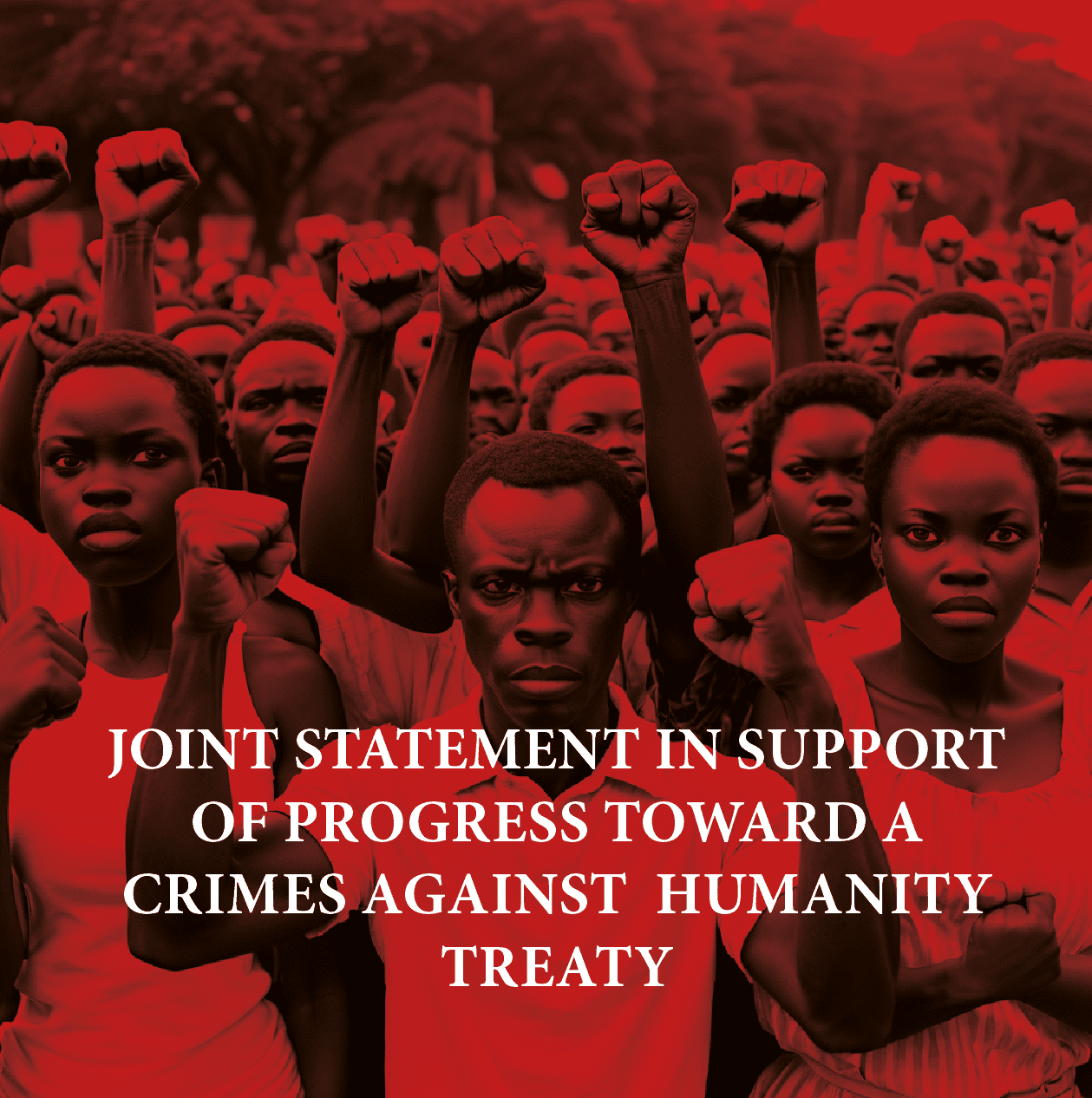The undersigned organizations and individuals — with representation from multiple geographic regions — express our support for a global convention on crimes against humanity, and urge states to utilize the 2024 April Resumed Session of the UN’s Sixth Committee to express strong support for a procedure to be adopted at the 79th Session of the UN General Assembly to move the Draft Articles on Prevention and Punishment of Crimes against Humanity forward to negotiations for a treaty.
Throughout history, millions of people have been subjected to murder, extermination, enslavement, deportation, persecution, and other atrocities that have shocked the conscience of humanity. Crimes against humanity continue unabated across the globe and the Draft Articles provide a timely and urgent opportunity for states to help end impunity.
Although crimes against humanity are among the most serious crimes in international law, there has yet to be a treaty regulating their prevention and punishment. A treaty on crimes against humanity would close a crucial gap in the current international framework on mass atrocities as well as clarifying states’ duties to prevent such crimes and means to cooperate with each other. A crimes against humanity treaty can also rightfully contribute to global affirmation of the gravity of these crimes.
In 2013, the UN’s International Law Commission approved crimes against humanity to be included in its programme of work. The Commission, in 2019, recommended the elaboration of a convention by the UN General Assembly or by an international conference.
In 2022, the UN’s Sixth Committee adopted resolution 77/249 to take forward steps for a treaty on crimes against humanity, including two interactive sessions in 2023 and 2024 on the Draft Articles, and a plan to take a decision on the ILC’s recommendation that a treaty go forward in the 79th session of the General Assembly.
We believe the International Law Commission’s Draft Articles represent a strong starting point to open negotiations on a treaty. There is broad agreement that the Draft Articles contain a number of positive elements, and differences in perspectives on the existing Draft Articles should not be used to perpetuate inaction. Accordingly, we urge states to follow the Commission’s recommendation that a treaty on crimes against humanity should be negotiated, either by the General Assembly itself or in a Diplomatic Conference convened for that purpose. 2
Our organizations also urge states at the April resumed session to identify important areas for further strengthening the Draft Articles. A variety of civil society groups have developed proposals toward this end. These include strengthening the proposed treaty by a variety of means.
We urge states at the April resumed session also to express overall support for an approach to the development of a crimes against humanity treaty that is gender-competent, survivor-centric, and deploys an intersectional lens. This includes ensuring the inclusion of a non-discrimination provision to apply and interpret the treaty’s provisions consistent with international human rights law.
We believe it is equally essential that the treaty-making process itself is inclusive. States should facilitate meaningful, inclusive, and safe public and civil society participation from across all regions, in all stages of the treaty-development process, including by people of all gender identities, as well as victims, survivors, and affected communities, and ensure that their voices are adequately represented in the final provisions of the treaty.

